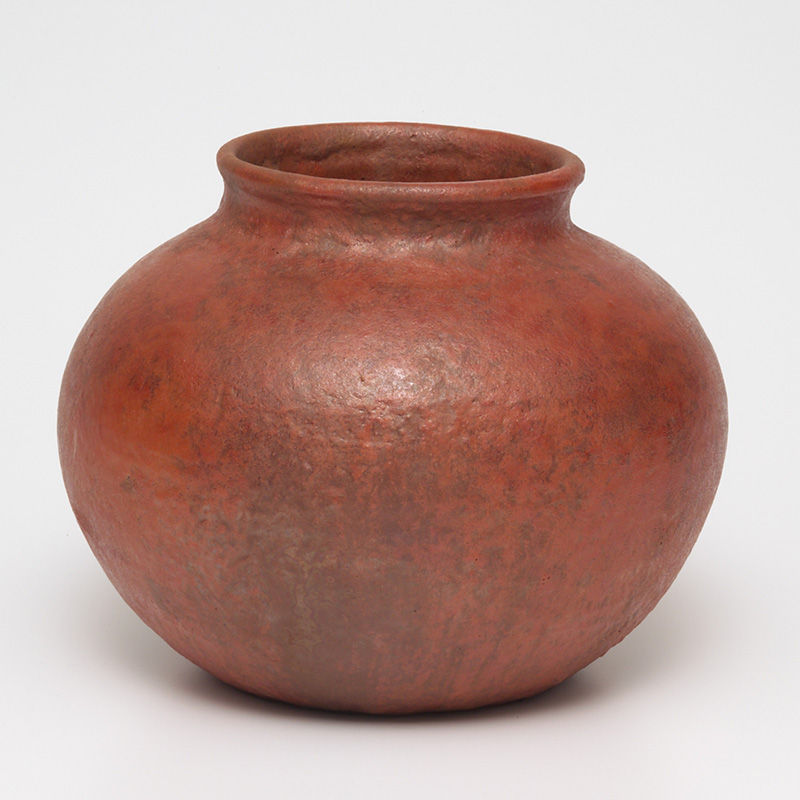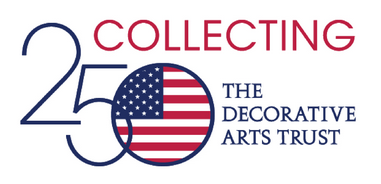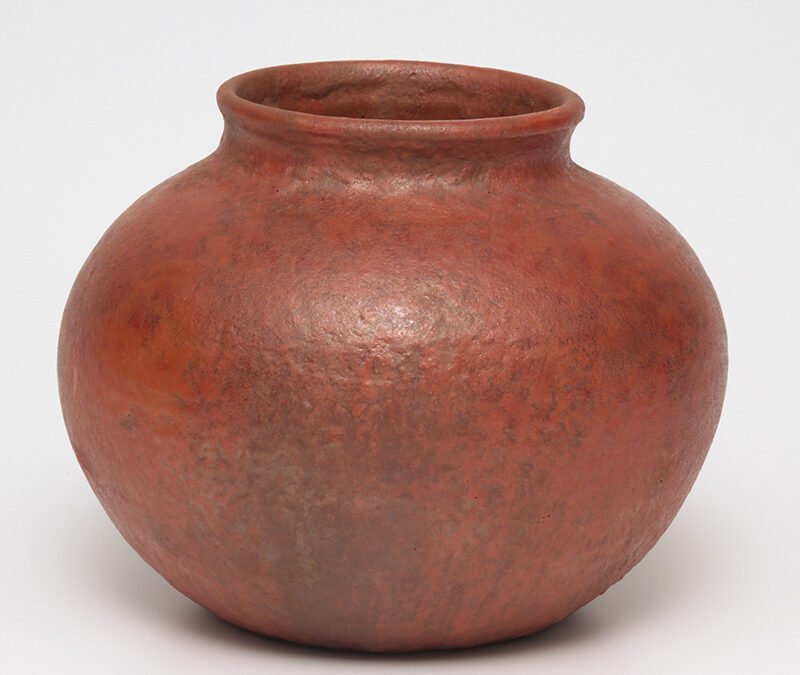
| Maker | Marie Levering Benson |
| Date of Creation | c. 1910 |
| Location | Lawrence, Kansas |
| Materials | Earthenware/Kanza ware, glaze |
| Institution | Spencer Museum of Art |
| Credit Line | Gift of the University of Kansas kiln |
| Accession Number | 0000.0972 |
| Photo Credit | Image courtesy of the Spencer Museum of Art, University of Kansas |
This vase is a fine example of Marie Levering Benson’s Kanza ware, which is made from local clays and glazes and named after the indigenous people of northeast Kansas, evoking a sense of place. Both the form and coloration of the vase and the actual clay used relate directly to the place where it was made. Benson dug these clays from around Lawrence and the region, including even the side of the hill of Mount Oread on which the University of Kansas was built. Benson lived in Lawrence, where she taught ceramics and design at the University of Kansas (KU) from 1909 to 1920. Before joining the KU faculty, Benson studied art from 1902 to 1908 at Newcomb College, the women’s college of Tulane University in New Orleans. Inspired by the Arts and Crafts Movement, the Newcomb Pottery Studio emphasized the use of native clays and motifs, and the potters took great pride in their Southern heritage. She brought this with her knowledge to KU, which can be seen in her emphasis on local materials. This example of Benson’s Kanza ware is made from Kansas clay and was fired at KU’s first kiln of experimental pottery. There is still a kiln and an active ceramics program at KU today. Unlike the transparent glazes of early Newcomb pottery, Kanza ware uses matte glazes and limited decoration. This simplified approach intentionally emphasizes materials and construction with the hope of establishing a local aesthetic. Kansas’ state name derives from the Kanza tribe, who lived on lands in the region for centuries. The warm, reddish glazes of the vase evoke prairie fires or Kansas sunsets.

